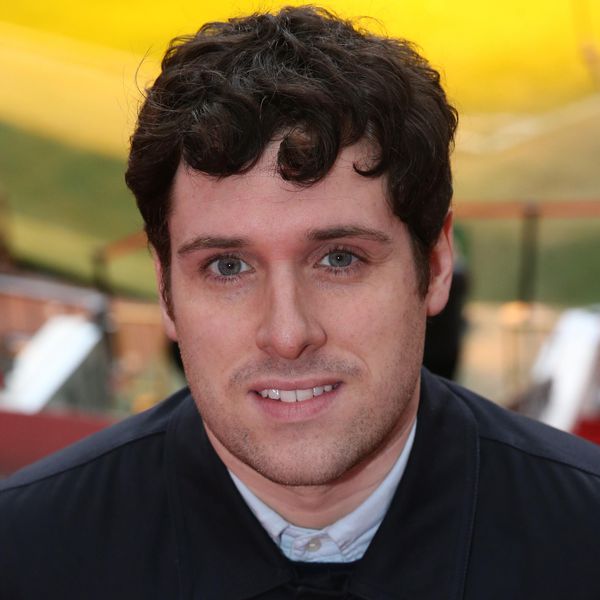Sir Matt's passing kickstarted my love of United
Humans do not widely regard death as a great starting point for anything.
But, strangely enough, I think the thing that truly kicked off my decades-long love of Manchester United was the passing of Sir Matt Busby in January 1994.
Under Sir Alex Ferguson, we'd famously ended our 26-year wait for a league title a year earlier, but that hadn't really broken through into my world. I was six when Bruce and Robson lifted the trophy – with Sir Matt a dewy-eyed presence amid the celebrations – but all I was interested in was the Wild West. Through the movies of John Ford and John Wayne, the 1870s and Monument Valley seemed a lot more exciting (or at least warmer) than Blackley, Salford or Stretford.
But when the great Scot left us, aged 84, early the following year, I was quietly stunned. Not by the loss – I knew nothing about Busby at this point – but by the reactions of those around me.
How the world reacted to Busby's death
ArticleFootballing greats paid tributes to the legacy left by Sir Matt, when he died on this day 30 years ago.
It was the first time I became acutely aware of the enormous affection and personal feeling of so many people towards Manchester United Football Club. I remember it precisely, because it is so entwined with memories of my childhood and my relationship with my father and grandfather.
I can remember creeping tearfully up the stairs to bed after a terse altercation with my dad. My mum followed soon after, perched herself next to me and quietly suggested I go easy on him, because he was very upset that one of his heroes had died.
At that age, I marvelled at my dad's calmness, authority and restraint, so the prospect of him being so shaken at the death of a man I had never met and knew nothing about was subtly shocking. My dad was the one who induced tears in me after a telling off, not someone who actually cried them. I thought he was indestructible.
As I learned more of Matt Busby in the days following his death, I felt for the first time a closeness with my father's younger self. The sense of wonder he conveyed when regaling me with tales of Georgie Best, Bobby Charlton and Denis Law held a romance and vigour that have not diminished one iota in the years since.
Until 1994, football had been an irritating distraction. Cartoons would be brutally swiped from the television screen as my father tuned in to what were then rare, live televised games. I found football colourless; a blizzard of noise and monotony that was out to ruin my afternoons. Now, from my father's mouth came a strange and epic tale that the Wild West-obsessed kid could relate to.
As I became a follower of United and learnt to love football, I never lost the original stamp that Busby's death and my father's uncharacteristic reaction left on me. United became the greatest story I had ever heard and each week another chapter was written. And, in the mid-90s, they were often as glorious and thrilling as the halcyon days my dad had witnessed during his own youth.
The Munich Air Disaster occurred when he was only three years old. My dad told me that it was the key point in United's history; the point where the club became a worldwide concern, tinged with something powerful and indefinable. Loss? Tragedy? Nostalgia? Doomed romance? Mystery? I'm still looking for the right words, 30 years on.
The names of those lost roll off my tongue like the days of the week: Geoff Bent, Mark Jones, Billy Whelan, David Pegg, Eddie Colman, Roger Byrne, Tommy Taylor and Duncan Edwards. The Busby Babes were deigned the best team England had ever produced up until that point. The little footage I have witnessed of them bears testament to the speed and ingenuity they played football with; a style that was strikingly futuristic to those who packed into Old Trafford and the grounds around England to watch them play every week.
I treasure what I know about these players; the brittle pieces of jewellery that Munich left for the heartbroken families, friends and fans who worshipped every dribble, swivel and shot.
Even before the Babes, Sir Matt had already created the great 1948 FA Cup-winning team. Then, 10 years after Munich, his darkest hour, he led United to the European Cup, at last completing the Babes' mission. What a career. What a life.
As a teenager, I could feel something of Busby's backstory every time Ryan Giggs burst towards goal, every time Paul Scholes manoeuvred the ball around with an unmatchable grace and guile. Even in these relatively barren years, the connection with youth and attacking football – and the sense that United is something important – remains intact. At United, the past always feels part of the present, and I don't think that will ever change.
When I go through the turnstiles at Old Trafford, using the season ticket my dad handed down to me, and stand on the terraces where my grandfather watched the modern United being born, I still feel part of something colossal.
Through the ups and the downs, United remains a Mancunian revelation that evokes my family, my home and my city in widescreen technicolour. And it all really stems from one man. Sir Matt.




